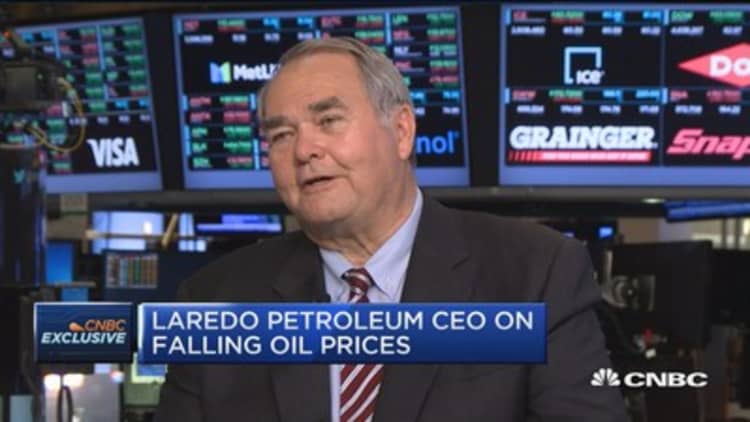
Production will continue to ramp up in the U.S. shale basins, despite low oil prices, Laredo Petroleum CEO Randy Foutch told CNBC on Friday.
"The Permian and other basins are going to grow," he said in an interview with "Closing Bell."
"Laredo grew our production last year about 11 percent. We've given guidance that this year that we're going to grow somewhere north of 15 percent. And that's more or less within cash flow. We've gotten very efficient."
Domestic oil production increased to 9.34 million barrels a day from 9.32 million the week earlier, according to the U.S. government. The U.S. oil industry exported a record 1.3 million barrels of crude per day onto the world market last week.
The increase comes at a time when other nations continue to cut back. OPEC, Russia and other producers extended their agreement last week to curb output by 1.8 million barrels a day for another nine months, in an effort to force a rebalancing of the oil market.
On Friday, crude fell more than 1 percent, posting a second straight week of losses.
U.S. West Texas Intermediate crude futures settled 77 cents, or 1.5 percent, lower at $47.66 per barrel. Benchmark Brent crude futures were trading at $49.95 a barrel by 5:17 p.m. ET, down 68 cents, or 1.3 percent.
Foutch said Laredo has worked to protect itself against low prices, so it doesn't have to worry about production cuts anytime soon.
"We're hedged for a couple of years, so we don't have to make a decision. We have options."
Oil prices would have to be "very low for a long time for us to stop. We've made a lot of significant investments. Those costs are there," he added.
—CNBC's Patti Domm and Reuters contributed to this report.
Correction: Foutch's quote about oil prices has been updated to reflect they would have to be "very low" for a long time.


